The city - sliced, diced and served with a dash of sauce
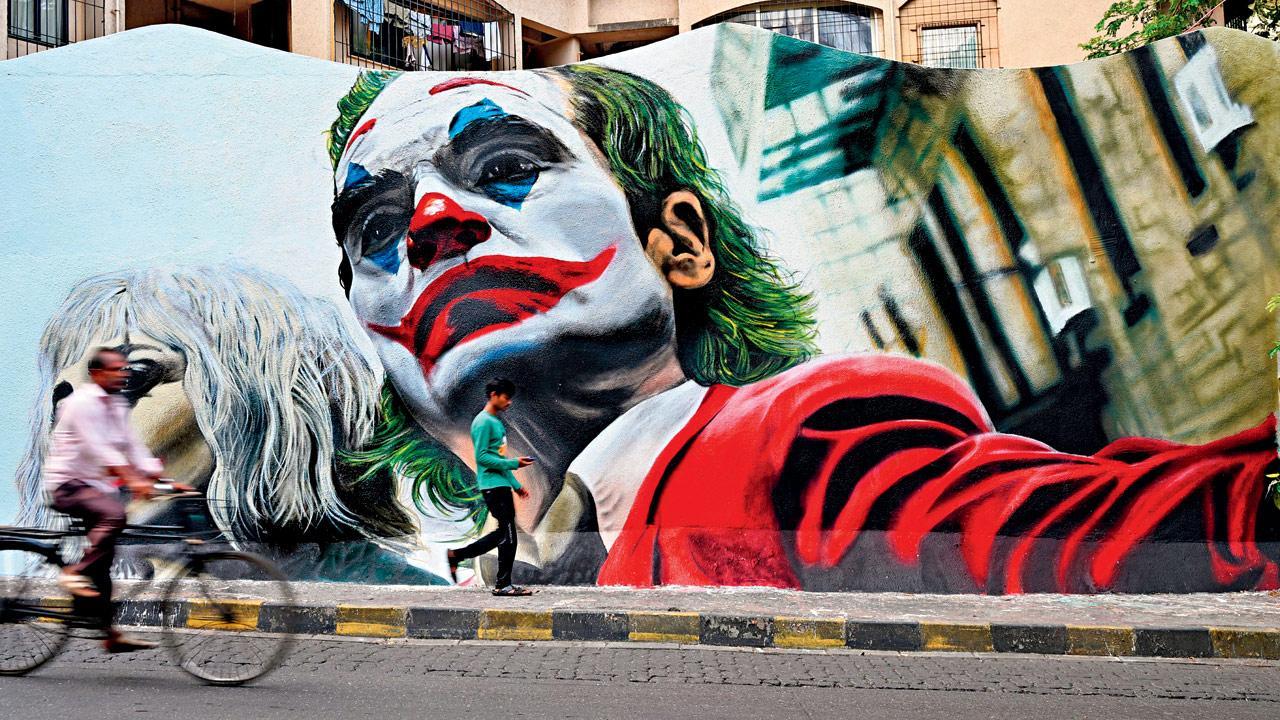
Pic/Kirti Surve Parade
No smile today?
ADVERTISEMENT
A mural in Khar of Joaquin Phoenix and Lady Gaga from their recent movie is perhaps reflective of the general mood in the city following the demise of one of its beloved sons, Ratan Tata.
Pohe and philanthropy
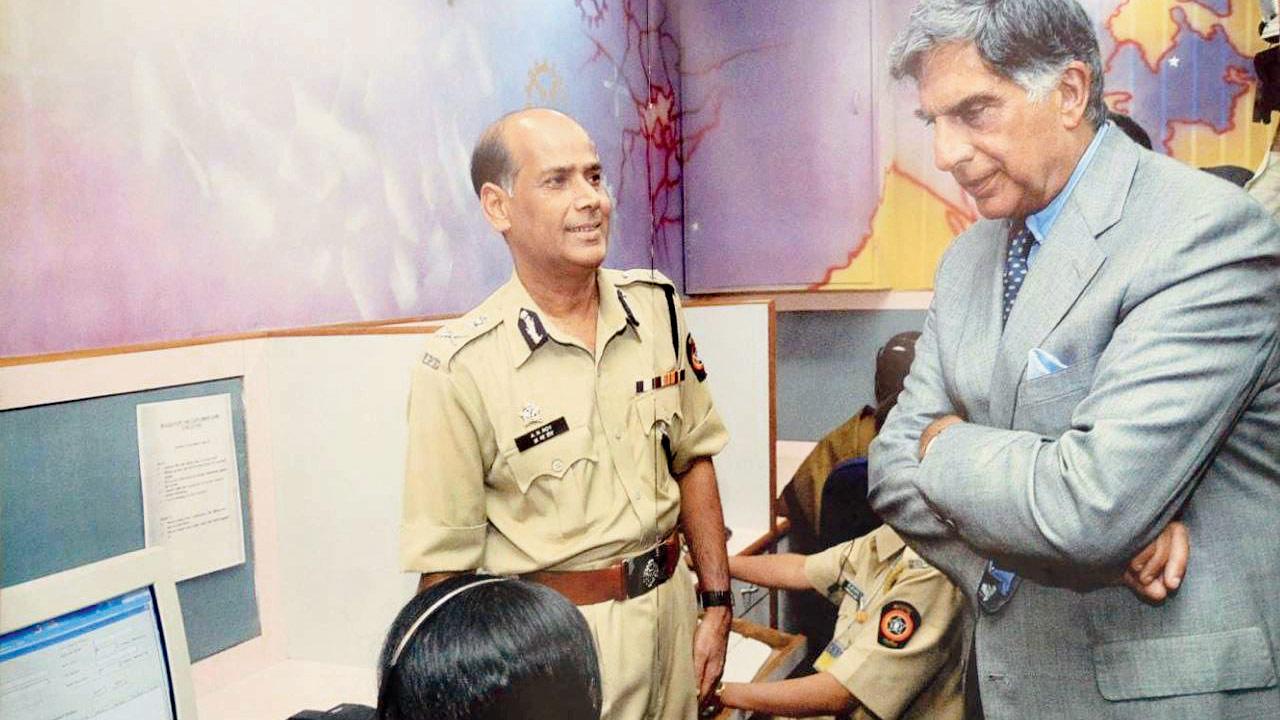
Former Commissioner of Police AN Roy with Ratan Tata at the Mumbai Police call centre in 2004. PIC COURTESY/DEEPAK RAO, MUMBAI POLICE commissionerate
How many Mumbaikars can say they casually strolled into a former Director General of Police’s (DGP) residence for a plate of fresh pohe? We can name one. “Mr Tata had a special affection for the pohe that Arvind Inamdar, former DGP of Maharashtra would prepare. I happened to meet him for the first time during one of these visits,” Deepak Rao, veteran author and historian shared with this diarist. While the industrialist’s close bond with the Mumbai Police is well documented, Rao highlights an act that embodies Tata’s philanthropic spirit.
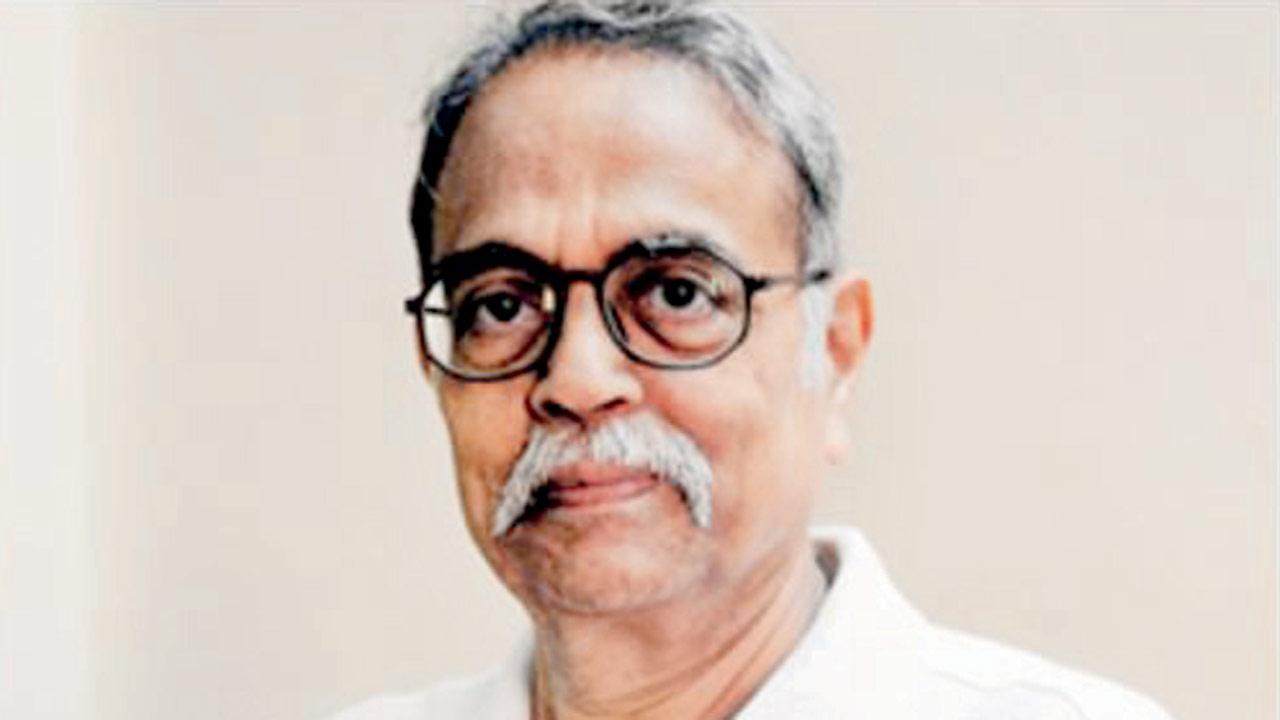
“In 2004, Mr Tata generously gifted Mumbai a state-of-the-art police call centre in collaboration with then Commissioner of Police, AN Roy. More than the act, it was the grace with which he bestowed the gift upon the city that we remember today,” Rao added. The moment is immortalised in a candid photograph from Rao’s book, Mumbai Police, where Tata is seen keenly observing the initial operations. His modest style, however, continued to remain free of any trace of snobbery. “He would frequent the streets of Colaba in his old Ambassador car. One would find him browsing through vegetables, take his pick, and leave without any fanfare,” Rao recalled fondly.
A hundred minutes with the people’s man
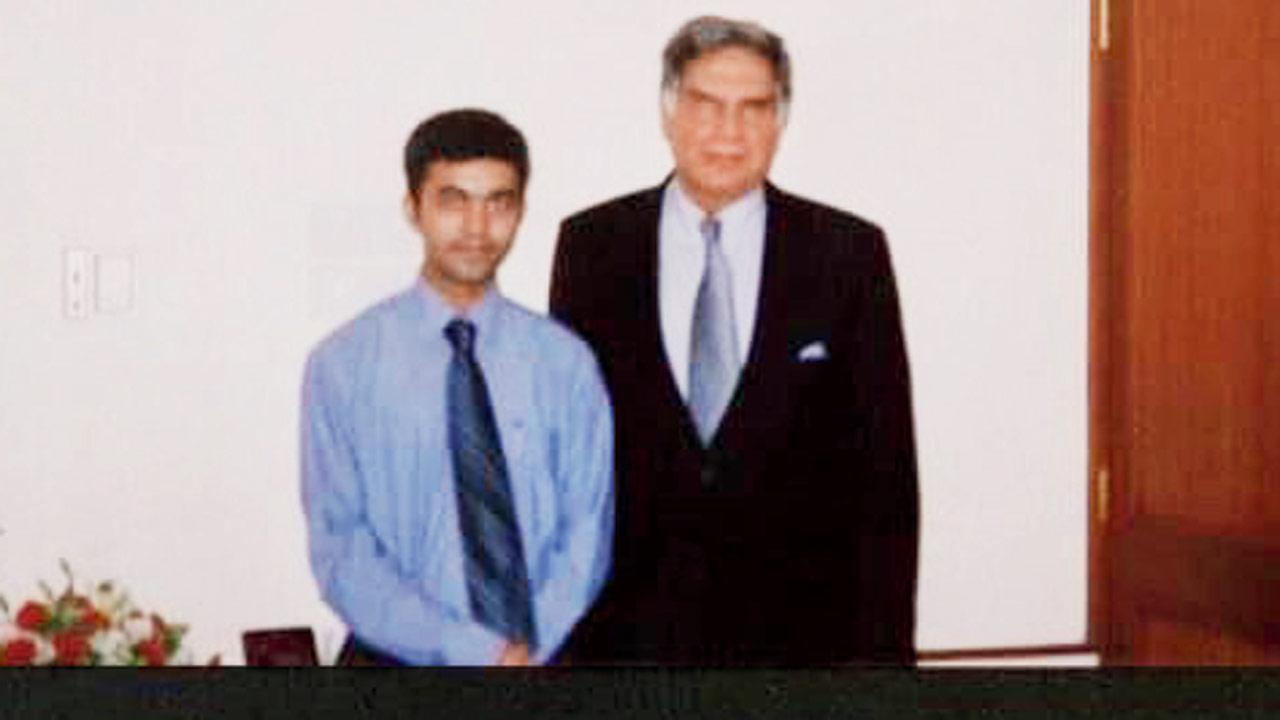
Naresh Nayak with Ratan Tata in 2006
Among the innumerable anecdotes of Ratan Tata’s generosity, lie glimpses of his business acumen that only a chosen few witnessed in person. Naresh Nayak from the family behind Cafe Mysore in Matunga, for instance. “I was holidaying with friends in Alibaug in 2005 when we saw a Tata Indica approach us near the beach. A tall man walked out with a tiny pet dog following him obediently. He had no idea who we were, but he struck up a conversation. It was my first chance meeting with Mr Tata. We talked about everything from workplace strategies to decision-making. Being a young MBA graduate, I asked him what company I must join given a choice,” Nayak recalled. Tata’s answer would still ring true in today’s times: “Join one that has a good system in place for its employees”. While Nayak walked away starstruck after meeting his idol, the lesson stuck. “Today, I’m an entrepreneur, but the words guide me through tough decisions,” he shared. Just a year after their first meeting, Nayak found himself sitting across from the business tycoon once again; this time for a formal meeting in SoBo. “We had scheduled a 100-minute meeting by appointment to discuss some ideas. Much like us, everyone in the room was a little intimidated by his aura. A server came to us with tea, his hands trembling. Mr Tata placed a reassuring hand on his back and said ‘I’ll take over’. That day we sipped tea served by the man himself. I haven’t met a man as complete as Mr Tata since that 100-minute meeting,” Nayak shared.
Paws-itive goodbye
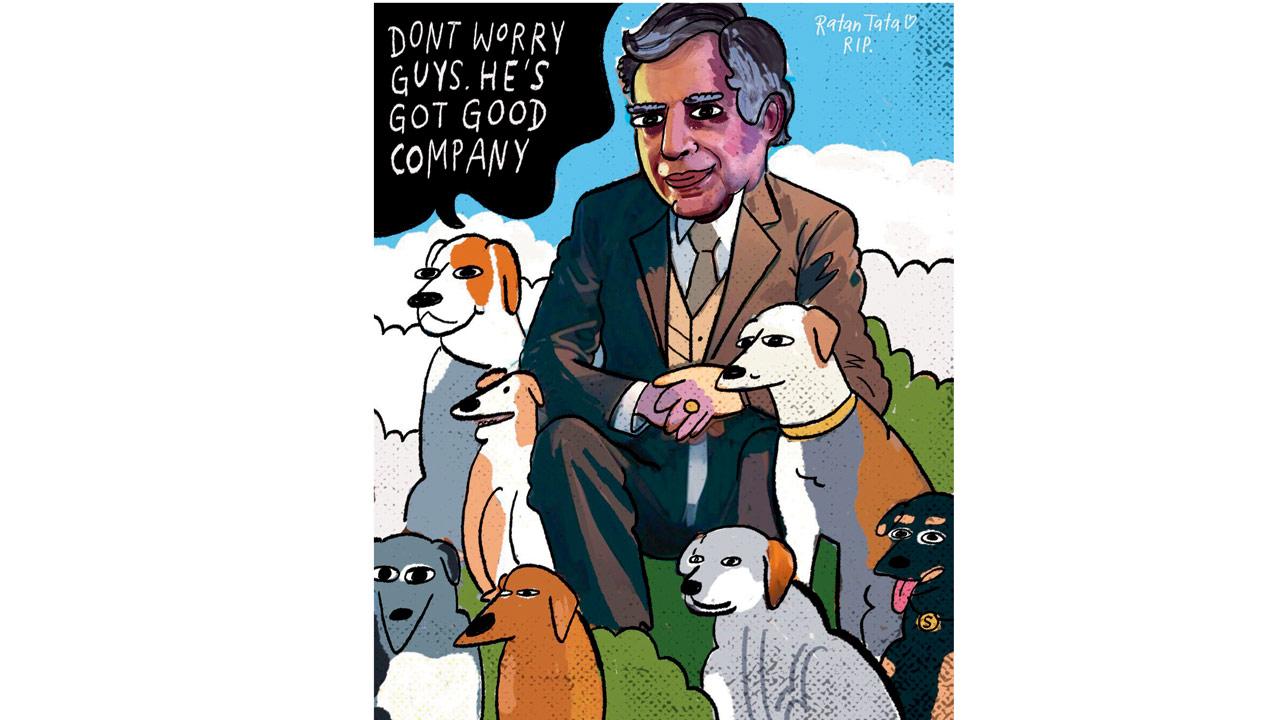
As the nation mourns the loss of Ratan Tata, illustrator Neha Sharma paid tribute with an evocative artwork. Her illustration (above) portrays the industrialist-philanthropist in heaven, surrounded by indie dogs, one of whom says, “Don’t worry guys, he’s got good company.”
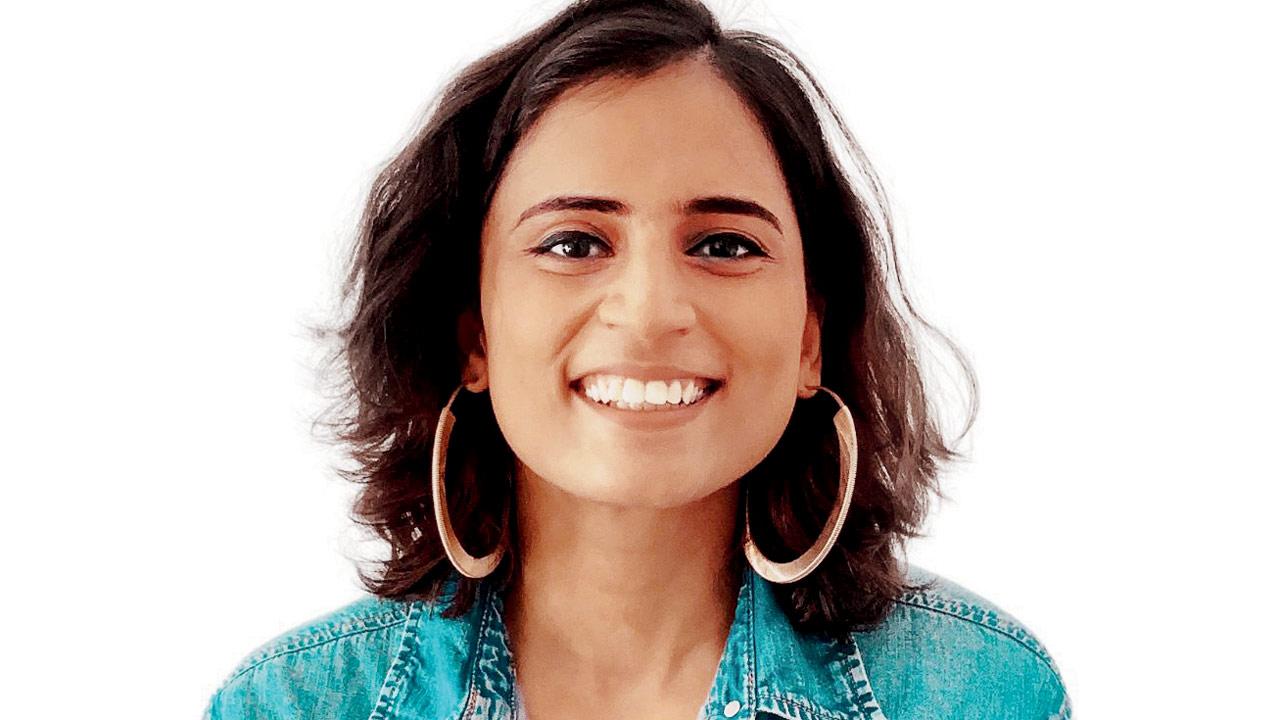
Sharma was moved by his commitment and love for animals, especially streeties, “When I heard the news, my first thought was that he’s now reunited with his dog, Tito,” she shared. Tata’s philanthropic work ranged from building shelters to establishing the animal hospital. “He had a profound impact on the lives of indie dogs and promoted adoption, which inspired me to contribute to the cause as well,” she signed off.
Art for a cause
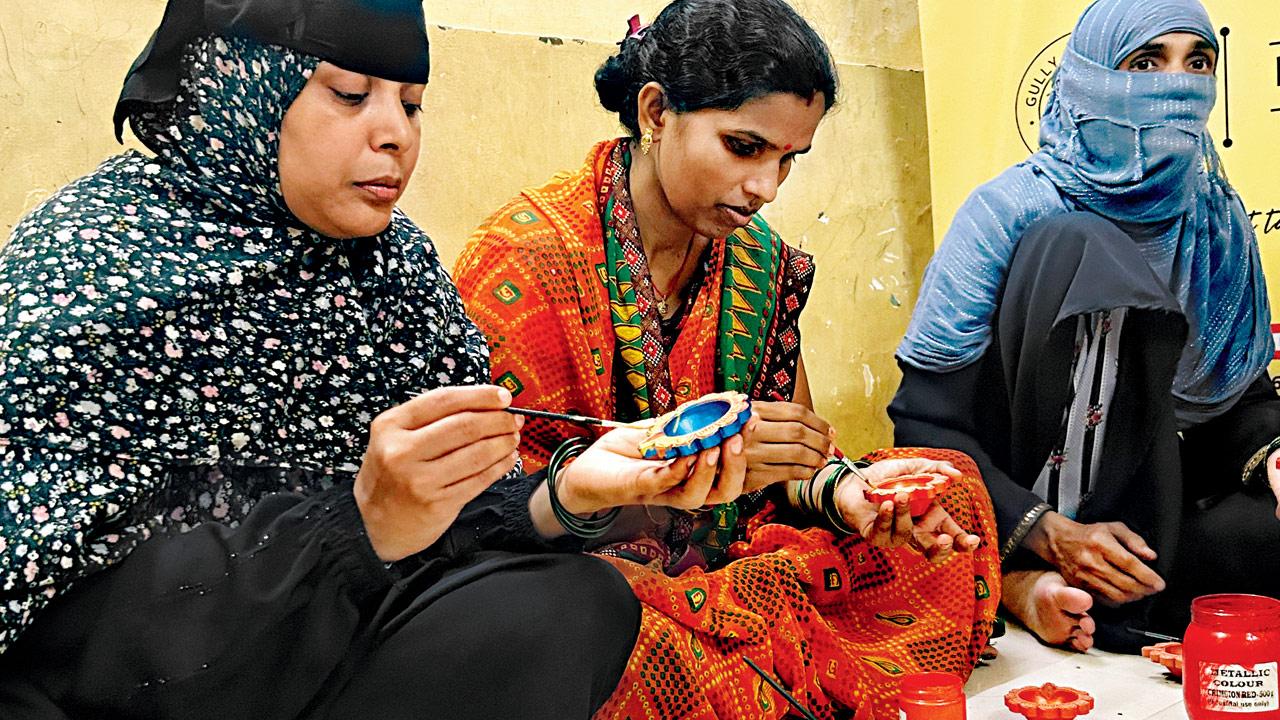
Women paint diyas at the centre
Homegrown crafts now have a digital home, with Gully Classes Foundation’s initiative. Through their website, they provide women from Ghatkopar who sell hand-painted diyas, mandala art, and candle holders with related material. “We aim to help them monetise their talent and give them 40 to 50 per cent of the proceeds from the orders,” said Abdul Munaf, its founder and director. The organisation is reaching out to schools and banks to help set up stalls. Check empowerstop.com for more details.
 Subscribe today by clicking the link and stay updated with the latest news!" Click here!
Subscribe today by clicking the link and stay updated with the latest news!" Click here!







